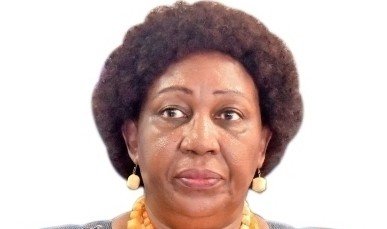Adv. Mariam Wangadya
By Henry MULINDWA
The Uganda Human Rights Commission (UHRC) has issued a strong objection to the government’s move to evict Balaalo herdsmen from northern and north-eastern Uganda.
This comes a few days after President Museveni issued an Executive Order No.2 of 2025, in which he gave express orders for the balaalo to be evicted from those areas describing their free-range livestock practice as very primitive and destructive to the community order.
The President went ahead and asked the Atornney General to craft a law that will criminalize this practice. He also set up a committee to audit the purported purchase of land by some of the able and enlightened balaalo in those northern Uganda areas and even fenced that same land into farms. The president wants to know how such people were able to buy land yet it belongs to the clans and also directed that as the audit goes on, the animals on such farms should also be removed to reduce on the tension.
However, the Uganda Human Rights Commission has now weighed in calling the move by government to evict the balaalo as extremely illegal, sectarian and purely out of order.
“I am compelled to comment on the issue of Balaalo currently happening in Northern Uganda. An entire community of Ugandans (Balaalo) have for long been victims of discrimination, hate speech and incitement to violence, and have been scapegoated for failures in service delivery by disingenuous politicians” UHRC Boss Adv. Mariam Wangadya said while officiating at the opening of a Stakeholder Engagement meeting on Marginalized Groups at Hilton garden inn.
Wangadya noted with concern that the balaalo now face dispossession of and eviction from land, most of which they rented and bought.
“This act, on the part of government is harmful, discriminatory, sectarian, immoral, illegal, unconstitutional and unacceptable” she said.
The UHRC Chairperson backed up her submission citing Article 26 of the Constitution of the Republic of Uganda which talks about protection from deprivation of property.
She said this article guarantees everyone the right to own property either individually or in association with others.
“Fundamental human rights and freedoms are being sacrificed at the altar of political expediency. I call upon government to reverse course and provide necessary protections to all the people of Uganda regardless of who they are” she advised.
Wangadya described the engagement as crucial because it was not about identifying gaps but co-creating solution concertedly.
“It is about challenging assumptions, asking hard questions, and—most importantly—listening. The goal is not uniformity in opinion, but unity in purpose: to ensure that no person is denied justice because of who they are or how they are perceived” she said.
She said the meeting which was attended by police, prisons, DPP office, CSOs among others took place at a time when questions of equality, accountability and access to justice are more pressing than ever both locally and globally.
She said here in Uganda, there are individuals and communities that live on the margins and are facing deep-rooted structural barriers, social stigma, and legal hurdles that make the path to justice uncertain, and sometimes inaccessible for them.
“We speak today of those who are too often silenced, sidelined, or forgotten. Individuals whose lived realities do not conform to societal norms or expectations, and whose identities or circumstances make them particularly vulnerable to discrimination, abuse, and sometimes institutional neglect.
Justice, in its truest sense, cannot be selective. It must be inclusive, impartial, and accessible. It must listen to the voices least heard and respond with fairness, compassion, and resolve” she noted.
Wangadya revealed that as a national Human Rights institution mandated to protect and promote the rights of all individuals without exception, UHRC continues to hold dialogues with marginalized groups. She said this has happened in Kampala, Jinja, and Mbarara, adding that next week, the commission will be in Lira.
“These encounters have been powerful and sobering. We’ve heard firsthand the stories of exclusion, harassment, and systemic failure. And we’ve come away with one clear message: the pursuit of justice cannot be achieved in silos” she said.








